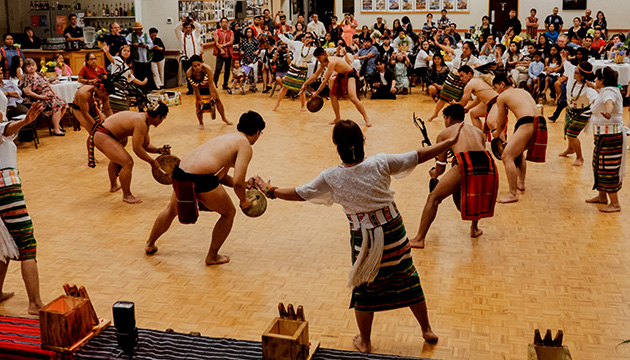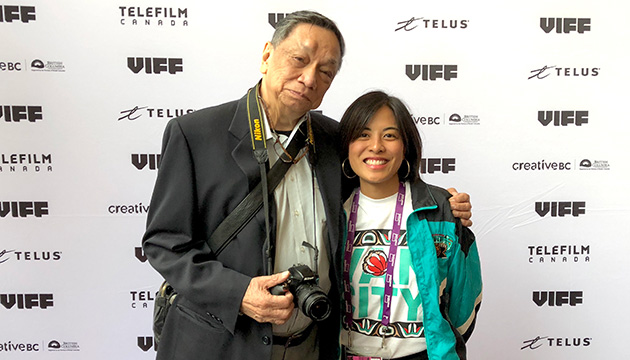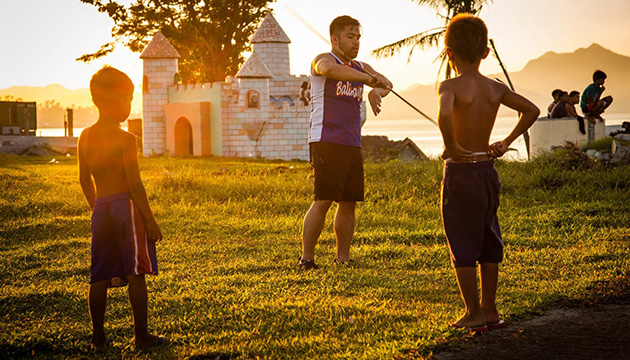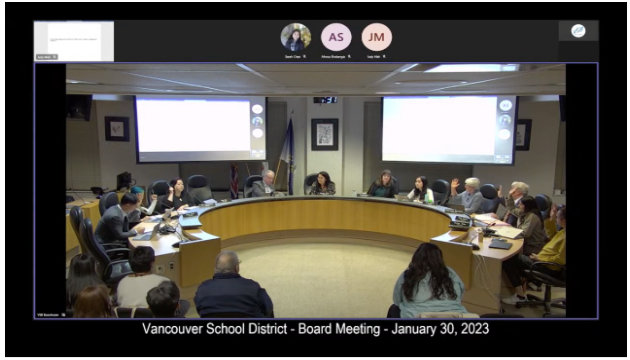When Mable Elmore was first elected MLA for Vancouver-Kensington more than 10 years ago, one of her first projects was to set up an Alliance of Filipino Associations in British Columbia (AFA-BC). It’s a sad commentary on the Filipino community that the AFA-BC did not materialize. And it was not for lack of trying on Elmore’s part.
Today a new effort to unite the Filipino community to achieve a common goal is underway. A small group of civic-minded Filipino community leaders have gotten together to set up a Canadian Pilipino community centre based in Vancouver. Why should Canadian Filipinos give it their full-hearted support?
Unlike past failed attempts to set up a Philippine community centre which ended in scandals involving misused funds and lawsuits, this new centre is supported by the Philippine Consulate General in Vancouver and MLA Mable Elmore. It is led by well known and highly respected Filipino professionals with untarnished reputations in their respective fields.
Why have a Canadian Pilipino community centre
The fact that there are more than 100 Filipino organizations in Canada shows that Filipinos desire to strengthen their relationship with other Filipinos who share their values and interests. They want to maintain active links with other Filipinos through organized activities. That’s why they have associations based on their hometown or school they attended in the Philippine. Or based on town, city or province where they reside in Canada. There are also youth, women and seniors organizations, athletic and sports associations and artistic and cultural groups. Also associations for professionals and technical practitioners and cause-oriented activists like the Committee for Domestic Workers and Caregivers Rights (CDWCR) in Vancouver.
As a relatively young community, Filipinos need to work together to better look after each other and to better show other Canadians the depth and wealth of the Philippine heritage they bring to Canada. They have a lot to be proud of in their Philippine culture, values and traditions.
Steeped in their bayanihan tradition of helping one another, Filipinos are known for their generosity of time and effort in helping others. In addition there’s their love for family, respect for elders, care for children, their kindness and hospitality, religiosity, their reverential regard for education, law and order. They have a deep sense of debt of gratitude and reciprocity. Plus there’s their music, arts and history.
There are many talented Filipinos aside from doctors, lawyers and entrepreneurs – actors and actresses, chefs, dancers, painters, photographers, scientists, singers, writers –whose artistic works should be shared and appreciated by a wider audience. They need the unified support of a Canadian Filipino community to preserve their cultural heritage and contribute to Canada’s multicultural life.
In addition, there are issues that affect many Filipinos in Canada which need community action to resolve. The low employability of children of temporary workers who are not able to pursue post secondary school education is a looming problem for the community. Without the means for upward mobility, they and their families are doomed to a lifetime of menial jobs and a bleak future of uncertainty.
Surely there is a need to support educational, cultural, sports and other group activities for Filipino youth to encourage them to become more aware of their cultural attributes and make them proud to be Filipinos. Many young Filipinos need role models and mentoring programs while students having problems adjusting to the Canadian system of education need tutorial assistance. Some Filipino university students are already doing some tutoring but more is needed to lower the drop-out rates of Filipino students in public secondary schools.
Most first generation parents were set back by the non-recognition and accreditation in Canada of their Philippine education and experience. They need help to get their educational, technical and professional qualifications accredited for decent paying jobs. Then there is the need to advocate for policy measures, legislative enactments and immigration reforms to achieve landed status for caregivers on arrival to avoid the problems caused by Canada’s short-sighted Live-in Caregivers Program.
Every year hundreds of newly-arrived Filipino immigrants need support. Then there is also the growing number of lonely grandparents who came to look after grandchildren and have grown older in Canada without pensions in retirement.
Far too many Filipino temporary workers in Canada are still struggling to earn a living wage. Left to themselves, they may not be able to overcome the obstacles they face. But with the community’s united support, they can do much better in their struggle for a better tomorrow in Canada.
At present there are many Filipino organizations that, in their own limited ways, are extending some help to those in need. While this is laudable, a concerted effort to help these marginalized Canadian Filipinos will have a stronger impact in solving their problems. What is needed is an effective vehicle to coordinate various efforts of different groups, monitor their progress and redirect efforts where they are most needed. This is one of the ultimate goals of the soon-to-be-organized Canadian Pilipino community centre.
By coordinating the interest and actions of the various organizations, the unified effort of this Centre will amplify their issues and concerns across the country and bring them to the attention of all levels of government. So in the near future, should the Centre’s organizers ask you for help, please respond in true bayanihan spirit. There are almost 1 million Filipinos in Canada today. By working together they can achieve amazing common goals but first they must have the will to unite. They need to come together to better support each other.
By Eleanor R. Laquian
For the CFNet Editorial Board
Contact us at










